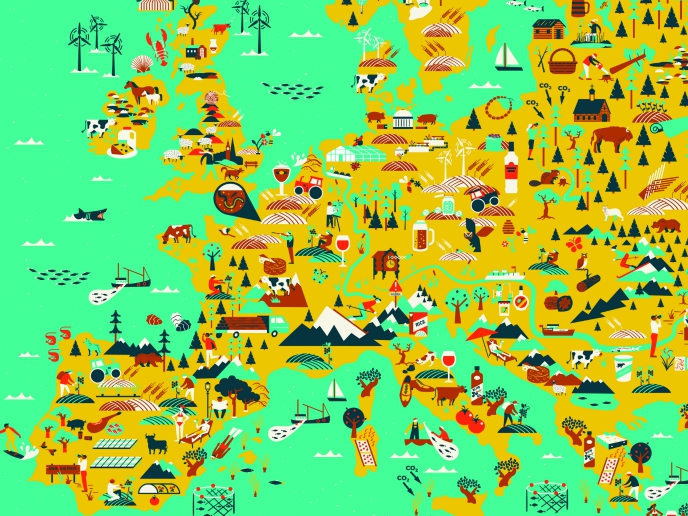Ecosystems’ true value identified
Ecosystems provide us with a range of resources, goods and services, but overuse and exploitation threaten their ability to continue functioning in ways that support human existence. The ES concept, sometimes referred to as ‘Nature's contribution to people‘, addresses this threat by reframing environmental resource use, explicitly acknowledging humankind’s dependence on nature and the need for better protection and management of natural resources. Despite being adopted in high-level policy frameworks, such as the Convention on Biological Diversity and the EU biodiversity strategy, the use of ES in decision-making still faces challenges. The EU-funded OPERAS project explored how and under what conditions the ES concept could be extended beyond academia and implemented in support of sustainable ecosystem management. Integration of ES into management plans The consortium, comprising 27 academic institutions and consultancies from across Europe, reviewed knowledge gaps, user needs and best practice to increase understanding and support policy and decision-making. It also developed techniques and tools for ecosystem management and tested them in twelve ‘exemplar’ case-studies. One example is the stabilisation of sand dunes using marram grass to save the coastline and biodiversity around Barcelona. Researchers also quantified the effect of forestry practices on water management. The tools they created showed that forest nitrate concentrations were significantly influenced by harvest methods, forest competition, site altitude, and time after harvesting. The project developed a set of 30 indicators of effectiveness and efficiency for the instruments used in ES assessments, linking natural capital (which includes geology, soil, air, water and all living things) with human well-being. How to value a landscape? OPERAS developed a toolkit to uncover the non-monetary value of landscapes, asking people to choose between land use options and to identify areas on a map they believed culturally important. This helps people to connect their values to the landscape and decision-makers to detect high-value spots. The initiative minimises damage to ecosystems and ensures human well-being through the effective integration of ES across policy sectors. Project coordinator Professor Mark Rounsevell explains: “It is important to understand what people value when developing ecosystem management plans, as traditional economic methods alone are insufficient for determining the full benefits of ES. Socio-cultural valuation, therefore, can ensure a more comprehensive treatment of values.” Development of knowledge marketplace Decisions concerning land use come with trade-offs over space, time and between stakeholders. Fortunately, OPERAS tools are now available to help decision-makers navigate trade-offs effectively. “There are many methods, approaches and tools to support ecosystem management, but applying them requires sharing real examples from which to learn best practice,” says Professor Rounsevell. Scientists and practitioners developed the Oppla(opens in new window) web-based resource portal, which contains all the tools, instruments and case studies from the OPERAS and OPENNESS projects. The research hub established communities of practice and a knowledge marketplace where the latest ES thinking is brought together. This includes ESCom-Scotland(opens in new window), short for Ecosystem Services Community – Scotland, a community practice that will continue beyond the project’s lifetime. Professor Rounsevell concludes: “Oppla represents a non-profit organisation with a mission to assist people in making nature work for the benefit of humankind.” The OPERAS initiative combined the efforts of researchers, policy makers and practitioners to support sustainable ecosystem management practices and promote knowledge of ES, leading to a wide-range of applications across Europe. Their positive socio-economic benefits include policies that will protect the natural environment, enhance the well-being of citizens and help further the EU’s green economy.







